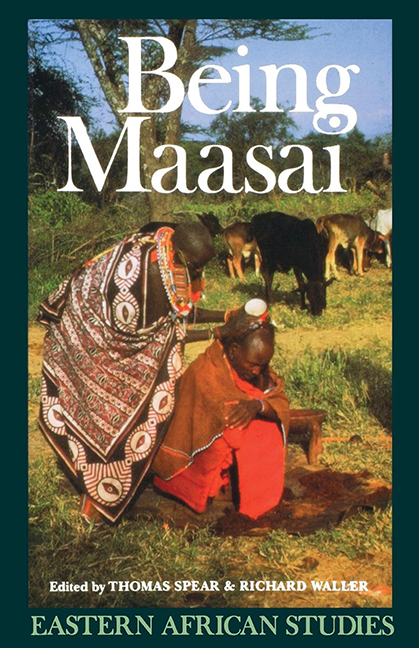IV - Contestations and Redefinitions: Introduction
Published online by Cambridge University Press: 30 August 2017
Summary
While cattle occupied a central position in the pastoral economy and, therefore, in struggles over definitions of ‘ being Maasai’ in the nineteenth century, land and markets have increasingly became the central resources and arenas in the twentieth. The establishment of African reserves, in both the highlands and the plains, sharply restricted Maasai access to pastoral resources and put them increasingly in competition with Highlanders seeking fertile agricultural land on the plains. As available land became increasingly limited, it came to be seen more as a resource which could be appropriated by individuals rather than as a communal territory containing resources for all (see Campbell, Chapter Twelve). Increasing penetration of the market has also provided Maasai with an outlet, albeit an uncertain one, as they now sell both catde and labour for cash. The implications of their integration into a wider economy for what it means to be Maasai are enormous, as we are only beginning to understand. For, if catde have been critical in defining Maasai views of themselves and have been the main means of mediating relations between themselves and others, what does a future bode in which land and market relations — privately conducted — replace catde — held in communal trust and widely shared — as the primary economic resources?
Waller examines the early stages of this process under colonialism, as control over land became in itself as significant for Maasai survival as access to catde had been hitherto. As scarcity of land in the highlands pushed increasing numbers of Kikuyu farmers to settle in Maasailand, Maasai fears over losing land encouraged them to cooperate with colonial authorities to restrict the immigration of outsiders. At the same time, however, the increasing difficulty of maintaining their pastoral economy encouraged Maasai to accept individual Kikuyu as client cultivators and even to adopt farming themselves. Maasai responses to outsiders were thus conflicting. On the one hand, they seemed to acknowledge colonial ideas regarding their ethnic exclusivity while, on the other, they continued to interact with Kikuyu and protected individual Kikuyu clients from removal by the colonial authorities. This resulted in continual negotiation over stereotypes.
- Type
- Chapter
- Information
- Being MaasaiEthnicity and Identity in East Africa, pp. 223 - 225Publisher: Boydell & BrewerPrint publication year: 1993



